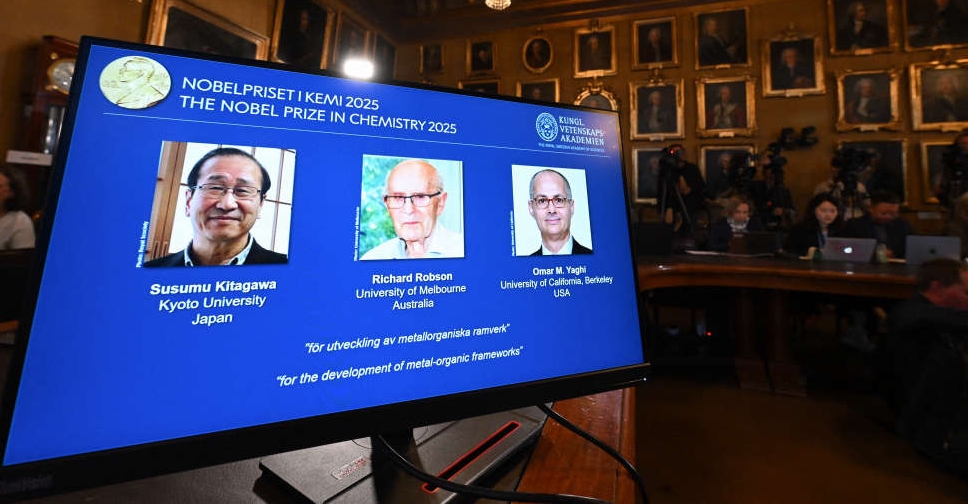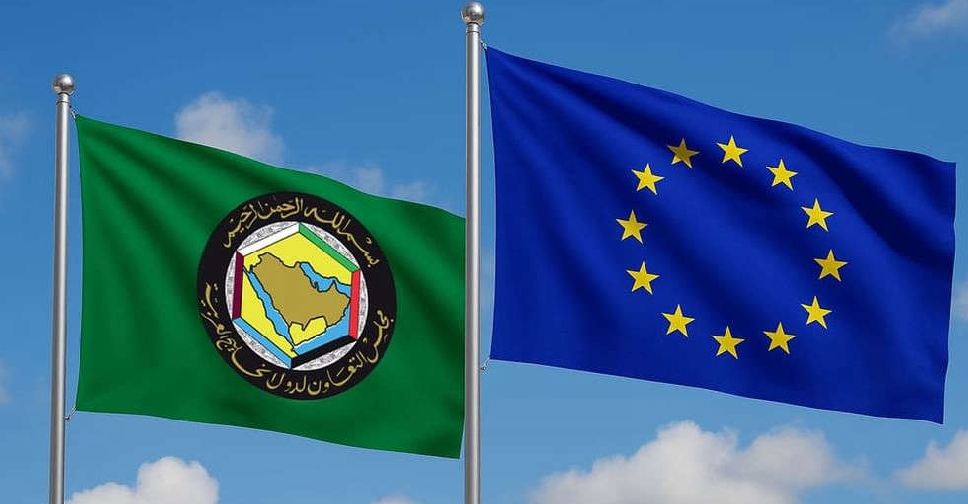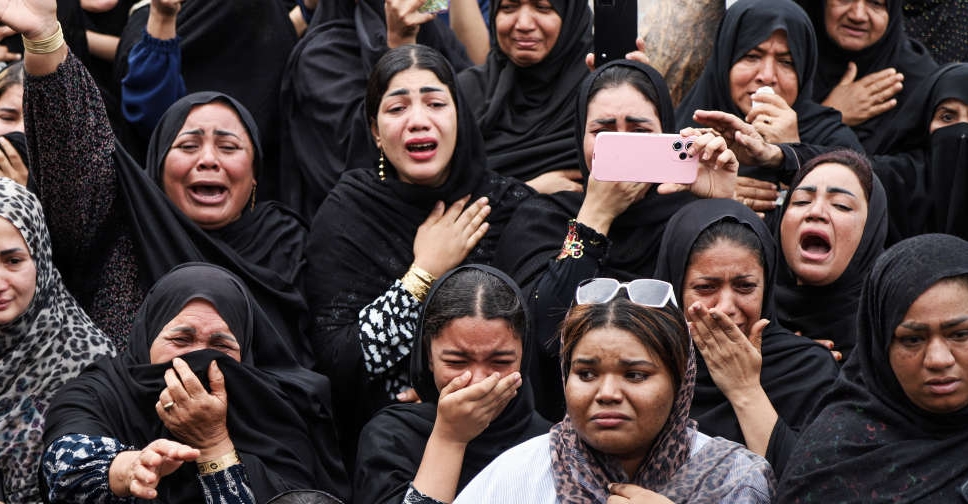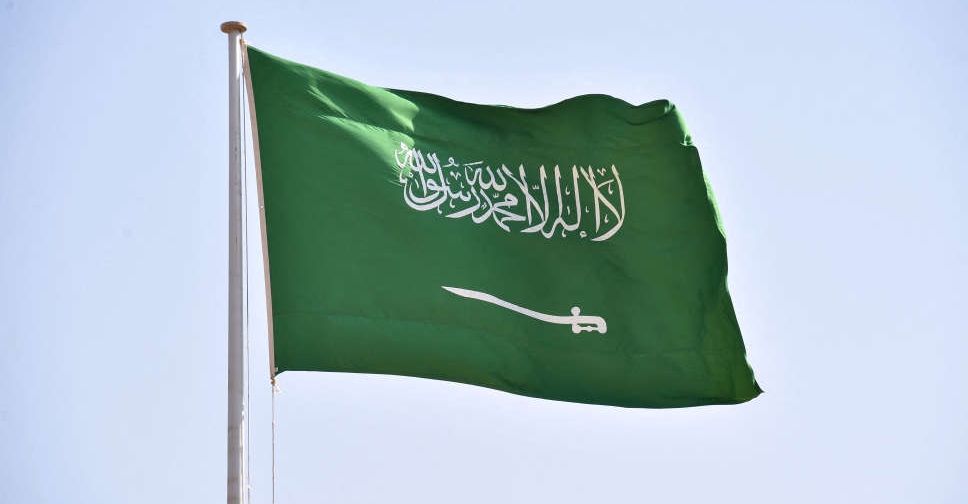
Scientists Susumu Kitagawa, Richard Robson and Omar Yaghi won the 2025 Nobel chemistry prize for developing a new form of molecular architecture, yielding materials that can help tackle challenges such as climate change and lack of fresh water.
The three laureates worked to create molecular constructions with large spaces through which gases and other chemicals can flow and that can be utilised to harvest water from desert air, capture carbon dioxide or store toxic gases.
The academy said some of these materials had a remarkably large surface area - a porous material roughly the same amount as a small sugar cube could contain as much surface area as a large football pitch.
"A small amount of such material can be almost like Hermione's handbag in Harry Potter. It can store huge amounts of gas in a tiny volume," Olof Ramstrom, Member of the Nobel Committee for Chemistry said.
'NEW OPPORTUNITIES FOR SOLVING CHALLENGES'
The more than a century-old prize is awarded by the Royal Swedish Academy of Sciences and the winners share 11 million Swedish crowns ($1.2 million), as well as the fame of winning arguably the world's most prestigious science award.
Kitagawa told the Nobel press conference that he was deeply honoured by the award.
"My dream is to capture air and separate air to - for instance, in CO2 or oxygen or water or something - and convert this to useful materials using renewable energy," he said
Kitagawa is a professor at Kyoto University in Japan, while Robson is a professor at the University of Melbourne, Australia, and Yaghi is a professor at the University of California, Berkeley, in the United States.
"Through the development of metal-organic frameworks, the laureates have provided chemists with new opportunities for solving some of the challenges we face," the award-giving body said in a statement.
THIRD 2025 NOBEL PRIZE, LITERATURE NEXT ON THURSDAY
The Chemistry Nobel was the third prize announced in this year's crop of awards, in keeping with tradition, following those for medicine and physics announced earlier this week.
Established in the will of Swedish inventor and businessman Alfred Nobel, the prizes for achievements in science, literature and peace have been awarded since 1901, with a few interruptions mostly due to the world wars.
Nobel was himself a chemist and his developments in that field helped underpin the wealth he amassed from his invention of dynamite in the 19th century. The economics prize is a later addition funded by the Swedish central bank.
Sometimes overshadowed by more famous laureates in the fields of physics, literature and peace, the chemistry awards have still recognised many influential discoveries such as nuclear fission, DNA sequencing techniques, and yeast.Last year's chemistry award went to US scientists David Baker and John Jumper and Briton Demis Hassabis for work on decoding the structure of proteins and creating new ones, yielding advances in areas such as drug development.



 Emergency GCC-EU meeting to discuss Iranian aggression
Emergency GCC-EU meeting to discuss Iranian aggression
 Omani navy rescues cargo ship crew after missile strike
Omani navy rescues cargo ship crew after missile strike
 UN 'deeply disturbed' by strike on Iran school that killed 160 children
UN 'deeply disturbed' by strike on Iran school that killed 160 children
 Saudi confirms attempted attack on oil refinery, no damage
Saudi confirms attempted attack on oil refinery, no damage
 At least four killed in Israeli strike on building in Lebanon's Baalbek
At least four killed in Israeli strike on building in Lebanon's Baalbek







